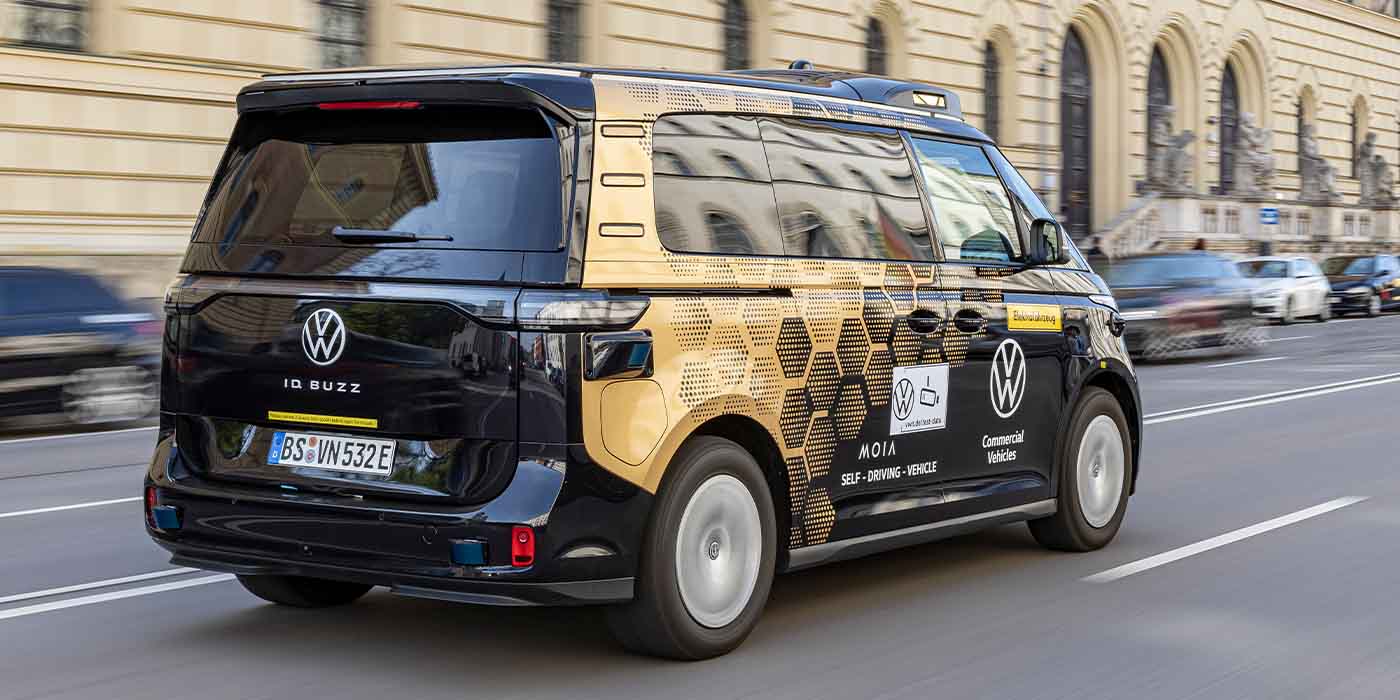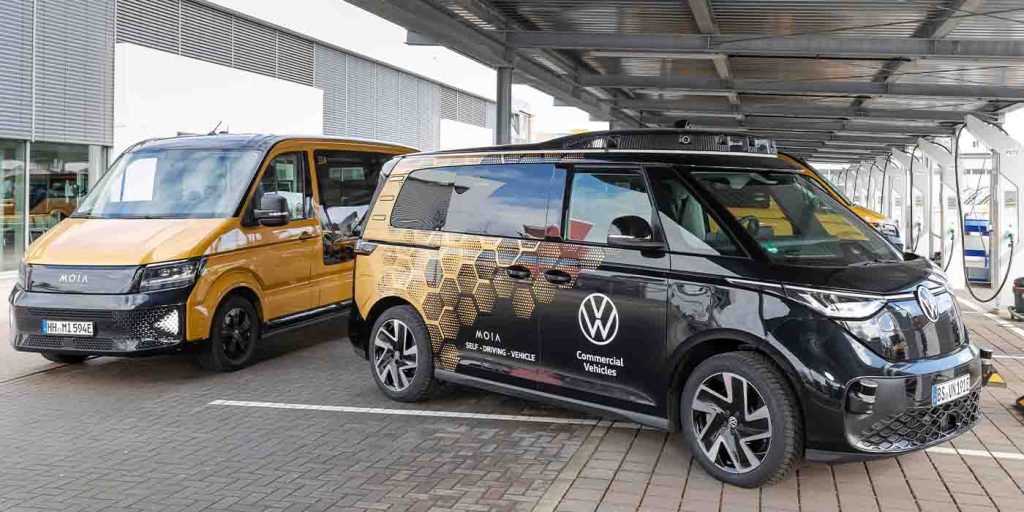
Volkswagen Commercial Vehicles continues to expand the scope of its autonomous driving technology simultaneously on two separate continents using its ID.Buzz electric vans. In Germany where the robotaxi testing initially started, Volkswagen will begin transporting actual passengers for the first time, including government officials.
We first caught wind of Volkswagen’s autonomous ID.Buzz EVs back in May, when its European rideshare arm MOIA announced a collaboration with Apex.AI to develop and implement its own passenger management system for the fleet of vans.
MOIA has been working with Volkswagen Commercial Vehicles since 2021 to develop and implement a pilot project for autonomous rides, beginning inGermany before expanding to cities around the world. We saw that project begin to take off in Munich before being joined by a US pilot program that launched in Austin, Texas in early July.
Austin sits and Volkswagen’s new US hub as the automotive group looks to expand autonomous rides to additional cities in the future. Meanwhile, Munich Germany remains VW’s robotaxi hub in Europe and is already starting to transport human passengers.

Volkswagen begins autonomous ID.Buzz rides in Munich
As Volkswagen approaches “production readiness” and commercial operations of its new autonomous EV fleet under its MOIA brand, it will begin transporting passengers in Munich – including government authorities, business partners, and journalists.
VW states that initial autonomous driving tests remain focused on EVs operating in urban centers – hence why Munich and Austin were chosen. The test will enable the ID.Buzz vans to navigate with Level 4 autonomous by SAE standards, for operations in ridesharing and transport services.
Volkswagen says MOIA will be the first to use its autonomous vehicles and will share ride data to assist in the development of the technology and its pending commercialized network. In the US however, Volkswagen says it intends outsource operations outside of its own umbrella in the future and will seek “external companies from the mobility and transport sector.” Christian Senger, member of the Board of Management responsible for development of autonomous driving at Volkswagen Commercial Vehicles, spoke to the division’s progress:
Expanding our autonomous vehicle program to North America is the next step in our global strategic roadmap and the result of a long-term investment. This will help us to test, validate and refine the technology on American roads as well.
Volkswagen will continue autonomous rides in Munich over the next few weeks as operations simultaneously expand in the US.
FTC: We use income earning auto affiliate links. More.


